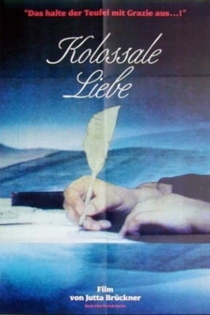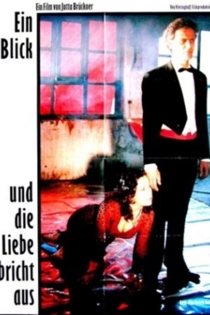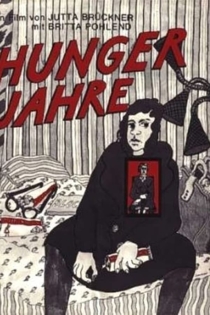
Jutta Brückner
1941 (84 года)Bertolt Brecht - Liebe, Revolution und andere gefährliche Sachen
Jutta Brückner
Peter Buchholz, Jutta Brückner
Brecht′s 100th birthday is being celebrated on 10 February, 1998. A good enough opportunity to examine his life closely again. The film director Jutta Brueckner is mainly concerned here with the question of the kind of person Brecht was. We have known him until now as the brilliant author and theatre director, through his plays themselves; we also know him as the cultural flagship of the GDR along with his world-famous Berliner Ensemble.
Bertolt Brecht - Love, Revolution and Other Dangerous Things
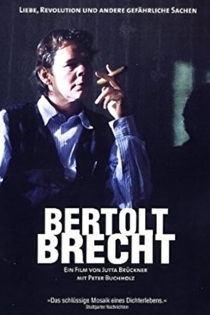
Hitlerkantate
Jutta Brückner
Lena Lauzemis, Hilmar Thate
Berlin during the Nazi reign: Young music student Ursula is a talented musician and a fervent admirer of the "Führer". When she is asked to assist renowned composer Broch, who was ordered to compose a cantata for Hitler′s 50th birthday, it first seems like a dream fulfilled. Over the time, Broch and Ursula fall in love, and her relationship with the former communist gradually changes Ursula′s perspective on the realities of Nazi Germany. But falling in love with a Nazi means a huge moral conflict for Broch.
Hitlerkantate
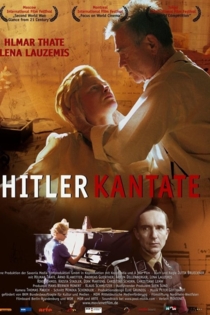
Ein ganz und gar verwahrlostes Mädchen - Ein Tag im Leben der Rita Rischak
Jutta Brückner
Rita Rischak, Manfred Fischer
It's a perfectly ordinary day in Rita's life: early in the morning her lover from last night left the apartment, and Rita doesn't dare to go back to work after she stole money in the telephone cabin the day before.
Ein ganz und gar verwahrlostes Mädchen
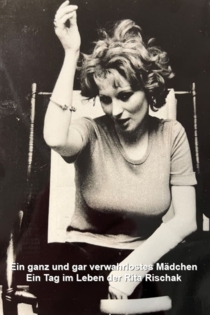
Bräute des Nichts. Der weibliche Terror: Magda Goebbels und Ulrike Meinhof
Jutta Brückner
Anne Tismer
"Brides of Nothingness: Female Terror." What connects Magda Goebbels with Ulrike Meinhof? - Both women represent a different side of modernity: continuity and fractures of a female mentality story in which the unconscious of history is sedimented. The fanaticism of both women was a publicly lived love story with politics.
Bräute des Nichts. Der weibliche Terror: Magda Goebbels und Ulrike Meinhof
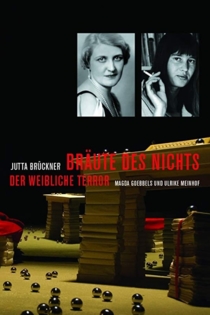
Tue recht und scheue niemand - Das Leben der Gerda Siepenbrink
Jutta Brückner
A portrait of a woman’s life between 1915 and 1975. In Jutta Brückner’s documentary, her mother looks back at the 60 years of her life, talking about her father’s early accidental death, the constraints faced by a lower middle-class family of five, her training as a seamstress, marriage to a bookkeeper committed to social democratic ideals, the privations of war, and not least of all, her later realisation that fear may have caused her to miss opportunities … An ingenious collage of picture and sound accompanies the mother’s narrative, a tapestry of proverbs, pop songs, marching music, and the noise of war. Hundreds of photographs – most selected from August Sander’s (1876–1964) project “People of the 20th Century”, alongside newer photos by Abisag Tüllmann, among others – lend the individual vita of the director’s mother a kind of ontological validity. Images of labourers and office workers, excursions and marches, imbue what we hear with references that transcend the personal.
Do Right and Fear No One
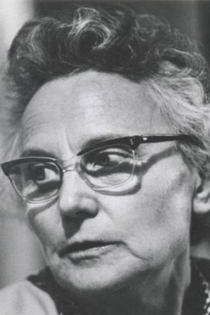
Kolossale Liebe
Jutta Brückner
Kirsten Dene, Ulrich Gebauer
Berlin 1808. A young, immature student who considers himself a poet, August Varnhagen, enters the famous salon of Rahel Levin, one of the first assimilated Jewish women of the Romantic period. He has heard of this woman who was praised by all for her wit and wisdom and he comes because he seeks connection and relations and in this salon the most famous men of the time crowded.
Kolossale Liebe
